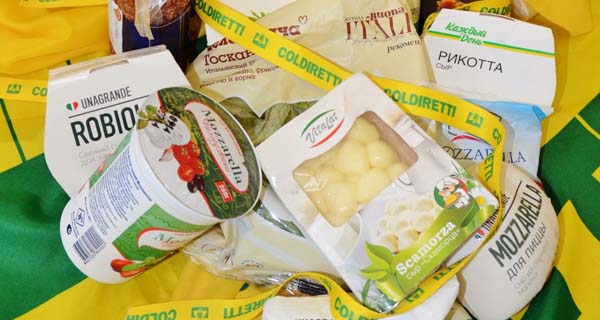
Vladimir Putin’s decision for a one year extension to the embargo on food products in response to the extension of sanctions towards Russia halves exports of Italian food products. This is what emerges from a Coldiretti study of the effects for made in Italy due to Russia’s decision to extend the embargo taken on August 6, 2014 for beef, pork and poultry, fruit and vegetables, milk and cheeses from EU countries, the US and from Australia, Canada and Norway, which was due to last a year. It is not clear if the list of prohibited products will be extended to other products such as canned fish, dairy products derived from vegetable fats, flowers and confectionery, as suggested by rumours from local authorities.
Italy’s food exports have virtually been halved (-51.1%) in the first quarter of 2015 but they are completely non-existent for fruit and vegetables, cheese and meat and meat products. The impossibility to export to the Russian market for many food products has caused a situation of oversupply on the European market with negative repercussions on prices paid to producers. The greatest damage, which is likely to last for years, is determined, however, by the stop to imports resulting in a boom of local Russian production of copycat made in Italy products, including salami, Russian produced cheese that in the first the four months of 2015 have marked a surprising 30 percent increase and also covers imitation mozzarella, robiola and parmesan. Confirmation comes from the Russian Pavilion at the Expo where at the end of the hall there is an area dedicated to Tatarstan which displays cheeses, many of which recall Italy for example with the Prego ‘Italian Style’ brand with the wording ‘Original Italian Recipe’ and products with the Italian flags with the words ‘Solo formaggio’. But the imitation products – continues Coldiretti – arrive in Russia from many countries that have not been affected by the embargo such as Switzerland, Belarus, Argentina or Brazil. On top of the damage caused by blocking certain products, however, we must add also the loss related to other products not affected by the embargo, even outside the food business – concluded Coldiretti – that have been affected by political tensions resulting in a declining trade.
